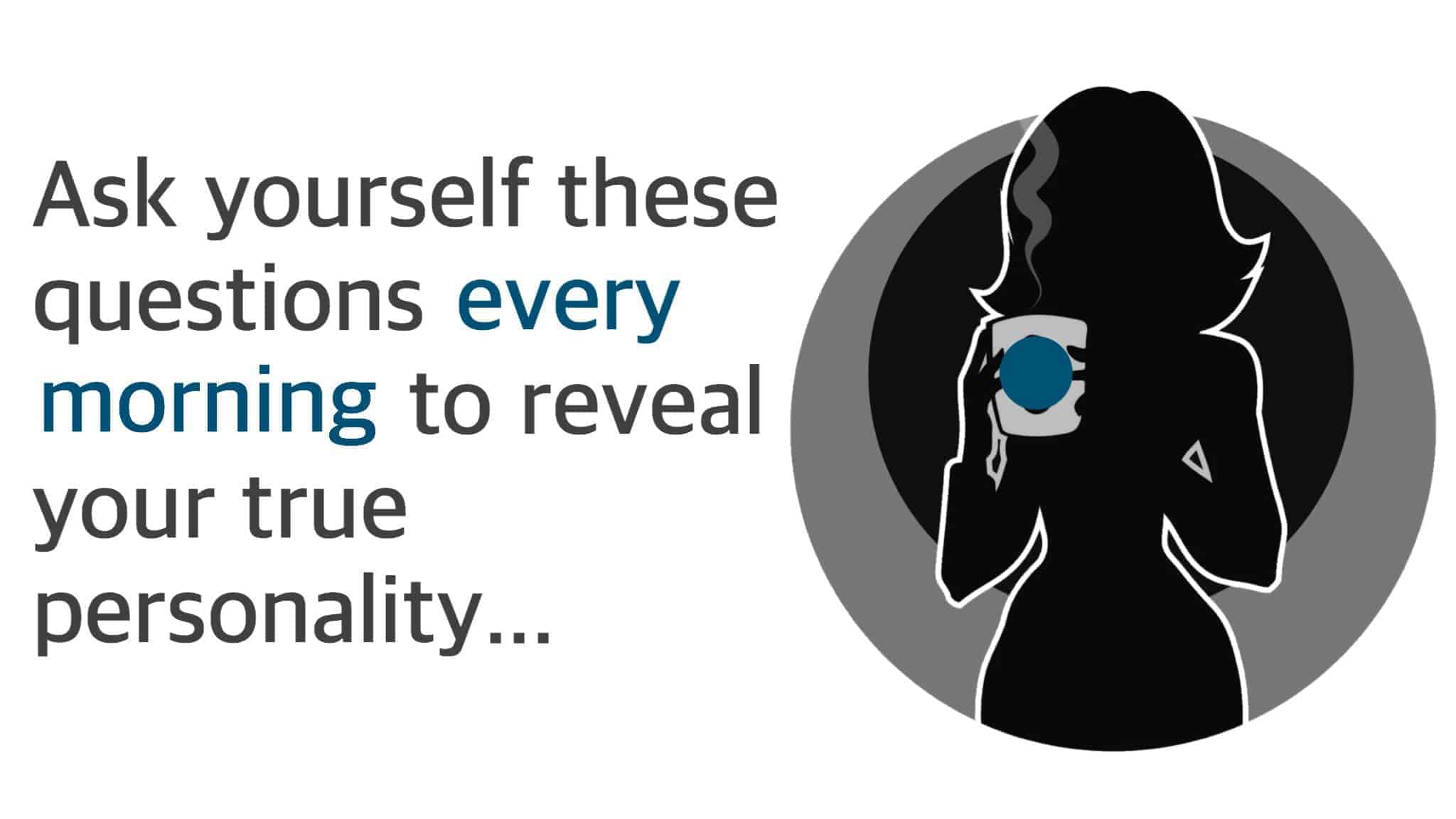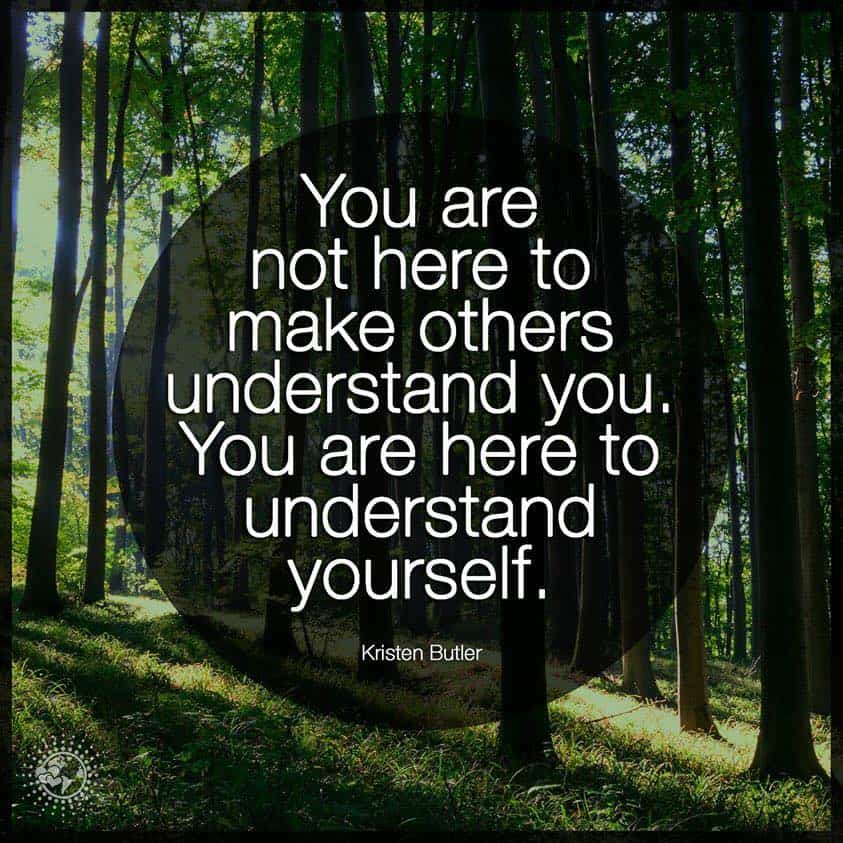Are you on a journey to discover your true personality?
Before we get deep into the article, ask yourself this question: “Do I have a clear sense of who I am?”
If we are to poll everyone on this question, it’s likely that the majority of responses would be “Yes.” After all, we’re (mostly) adults now, having undergone the process of “finding ourselves” – an at-best cloudy notion that assigns a certain period for this “self-discovery.”
But then there are those who would answer “No” to our hypothetical poll. There are many reasons why someone would respond this way. For example, the wanderers and dreamers and those never feel settled into this existence (more on this later.) Either answer is okay – and can even be good. It all depends on the individual and their circumstances.
The idea that we all have “place” in this world is, in itself, both debatable and subjective. Maybe we don’t want to have or want “a place”(e.g. “the wanderers and dreamers). Some defiantly ask “what is “a place” in this world supposed to mean anyways?”
Perhaps we’re posing the wrong question. Instead, maybe we should ask “Do I know my identity?”
What is our identity?
“It is hard, so terribly hard, to please yourself. Far from being the easy thing that it sounds like, it is almost the hardest thing in the world, because we are not always comfortable with that true self that lies deep within us.”
Put simply, our identity is the way we see ourselves. The vantage point of identity also influences how we view others and the world.
Our identity encompasses and intertwines multiple human elements. It is made up of our culture, family relationships, exposure to stress and trauma, life experiences, social relationships, personality, and other characteristics.
Our identity is also malleable and even fragile. Internal and external influences often shape our identity for better or worse, and can even incite an identity crisis – also known as a “loss of identity” or “losing oneself.”
When we lose our true identity, every facet of our lives is affected: work, relationships, disposition, motivation, and so on. A loss of identity is often perceived by the individual as “feeling lost,” often leaving someone bewildered and unsure about life and any meaning behind it.
Events that can impact personality
We experience a loss of identity for many reasons. Here are some common ones:
(1) Self-neglect: Putting the needs of others before our own, leading to a failure to recognize the worthiness and deservedness of our needs, goals, and dreams.
(2) Detachment: Separating from our inner-monologue and a loss of emotional intelligence. Instead of centering in on our thoughts, feelings, and emotions, we dull them by participating in self-gratification. Whether through technology, food, alcohol, drugs, or something else, we’ll (sometimes unknowingly) delay self-discovery.
(3) Life events: Transitioning from role-to-role due to the demands of life. Going through a divorce, job loss or other traumatic event often manipulates our brain chemistry and distorts our self-perception.
(4) Social expectations: Society can be cruel – something that we discover at a relatively young age. Any unique aspect of a person can be critiqued; from one’s appearance, intelligence, sexual orientation, perceived “quirks,” income, job title…on and on it goes.
When we’re looked upon as outsiders, we either adapt or isolate ourselves. Either way, such people will always “feel different.” As a result – in an attempt to navigate through life – we attempt “fit in” when necessary.
This false persona comes at a high price: loss of one’s identity. Some within this “group” resort to drug abuse or become victims of mental illness. Tragically, some people take their own precious lives, thinking that they’ll never be “understood.”
Rediscovering your identity
Now that we’ve defined identity, described potential influences, and touched on the ramifications of losing one’s identity, we are now in a good position to discover or rediscover our individualism.
Discovery necessitates both an inquisitive and open mind. To unearth our true identity is to acknowledge (answer to) certain queries to bring this true identity to our consciousness’s surface ultimately.
It is important to understand that repeated questioning of thoughts, behaviors, and emotions is necessary for this self-discovery to take place. As such, it is suggested that we do so at least once per day, preferably in the morning when we’re about to set out on the journey ahead.
Finally, here are the questions we should ask ourselves each morning:
1. Do I have short-term and long-term goals? What are they?
2. What am I, or have been, ashamed of in my life?
3. What consistently brings about anxiety or a sense of worry?
4. What or who gives me the most comfort? Is this source of comfort healthy?
5. Putting aside fear and uncertainty, what would I love to do?
6. Where and when do I feel safe? Unsafe?
7. What achievement am I proudest of?
8. What does my inner critic say about me? (Write them down)
9. Do I practice self-care and self-compassion? How?
10. What do I have to be grateful for? (There should be something here)
11. What do I dream about? What thoughts or emotions do they bring, if any?
12. Do I enjoy being around people or do I prefer solitude? (Either is fine, just know your tendencies.)
13. What do I most enjoy doing?
14. When my life is dark, what or who do I turn to? Why?
15. When I’m stressed, do I react rationally or impulsively?
(Bonus 5 questions!)
16. Am I an early riser or night owl? Can I make any changes to put my best self forward?
17. What are my passions? Am I living them out?
Related article: Asking Yourself These Questions Every Day Can Reveal Your Deepest Desires
18. What failure still haunts me to this day? Maybe it’s time to let go?
19. What values do I hold dear? Am I adhering to these values?
20. What are my strengths? Weaknesses? (Write them down)
We sincerely hope that answering these questions reveals more about the special person you arh. Appreciate yourself, love yourself, acknowledge what you’d like to change, and find your true identity!


















